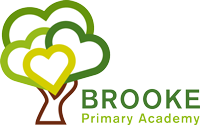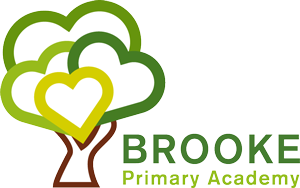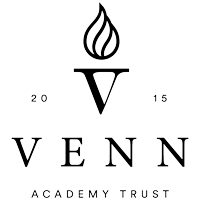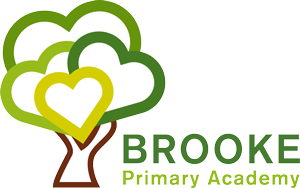
A Venn Academy Trust School
– Together we will…
Venn is a pioneering academy trust, committed to building educational environments where all pupils are inspired to become lifelong learners who achieve the very highest standards possible.
Collaborating with all partners, the Trust works with its unique settings to create world class learning experiences for all.

Our Curriculum
At Brooke Primary Academy our learning is based around a well-structured and sequenced curriculum that is broad, balanced and relevant. We have designed our curriculum to meet the needs of all our pupils and to provide them with a wide variety of learning experiences.
The curriculum will enable our children to have a thorough understanding of all aspects of the National Curriculum, with an emphasis on understanding their local area. We want our children to be proud of where they come from, to respect their community, but also to see that there is life beyond Thorne. Our curriculum is exciting and engaging, offering lots of challenge and scope for the children to express their creativity with confidence.
When our children leave Brooke, they will have received an education that has prepared them for life in 21st century and they will develop as kind, tolerant and considerate members of society. They will be equipped for the next stage of their educational journey and they will have a love of learning supported by the skills of independence, resilience and adaptability. As a result of our curriculum, Brooke children will be enthusiastic, confident and ambitious learners with high aspirations and a desire to be a leader of their own learning.
| Subject | Leader | Further Support |
|---|---|---|
| English | Mr Lee Farrand, Miss Sarah Hennigan | Mrs Sheila Breckell (Governor) |
| Maths | Miss Anna French | Mr Martin Oldknow (Governor) |
| Science | Mr Liam Moore | Mrs Francesca Dodds (Governor) |
| Physical Education | Mrs Shelley Whitfield, Mr Chris Whitfield | KIXX Team (Coach Shelley) |
| Art and Design | Mrs Natalie Roberts | |
| Design and Technology | Mrs Samantha Brown | |
| History | Mr Ben Thomas | |
| Geography | Mrs Shona Sanders, Mr Cameron Jones | |
| Music | Miss Charlie Rowbotham, Mrs Lisa Cheetham | |
| French | Mr Lee Farrand, Miss Jessica Low | |
| Religious Education | Miss Louise Jackson | |
| Personal, Social and Health Education & Relationships and Health Education | Miss Shamiqueka Benjamin-Webster | |
| Computing | Miss Hayley Jackson | |
| Outdoor Learning | Mr John England | |
| Healthy Learning, Healthy Lives | Mrs Samantha Brown | |
| Pupil Premium | Mrs Sarah Hall | Mrs Sheila Breckell (Governor) |
| Special Educational Needs and Disabilities | Mrs Lynsey Baxter | Mrs Nicola Witham, Mr Richard Breckell (Governors) |
| Safeguarding | Mrs Sarah Hall (DSL), Mrs Lynsey Baxter (DDSL) | Mrs Jade Chowings (Inclusion Assistant), Mr Martin Oldknow (Governor), |
Further Information:
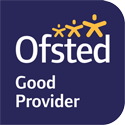
Support for SEND: The school effectively identifies and supports pupils with special educational needs and/or disabilities (SEND), involving parents in the assessment process and adapting lessons to help these pupils build new knowledge.

Anti-Bullying: Pupils respect each other, believe in the school’s values, and feel confident that any issues, including bullying, would be resolved quickly by adults.

Safeguarding: The school has effective safeguarding arrangements, creating an open and positive culture that prioritises pupils’ interests.

Promotion of Values: Pupils learn about diversity and British values through various activities and demonstrate positive attitudes and respect for others. The school also encourages community involvement, such as the choir singing in residential homes and helping at the local food bank.

Curriculum and Learning: The curriculum is well-considered, building on previous learning to deepen understanding. While assessment systems need improvement, the school’s overall approach helps in identifying and supporting pupils’ needs.

Extracurricular Activities: There is a wide range of clubs available, such as football, rugby, forest school, and choir, which help develop pupils’ talents and interests.

Governance and Leadership: Trustees and governors are skilled and committed, regularly visiting the school and maintaining an accurate picture of its operations to ensure continued improvement.

Overall Effectiveness: The school is rated “Good” in all categories, including quality of education, behaviour and attitudes, personal development, leadership and management, and early years provision.

Positive Behaviour: Changes in how behaviour is managed have helped pupils reflect on their feelings and make better choices. This has resulted in positive behaviour during lessons and playtimes.

School Environment: The academy is described as a warm and welcoming place where pupils feel safe and happy. Respectful and positive relationships are central to the school’s environment.

High Expectations and Progress: The school sets high expectations for all pupils, which are being met. Parents appreciate the support and information provided by the staff and are pleased with the progress their children make.

Reading and Phonics: The school is committed to ensuring all pupils learn to read. Effective training and support for teachers, along with appropriate reading materials and catch-up sessions, help pupils read accurately and confidently.

Early Years Provision: The early years setting promotes positive relationships and collaboration among children. Adults model effective communication and use assessment well to engage children in their learning.
